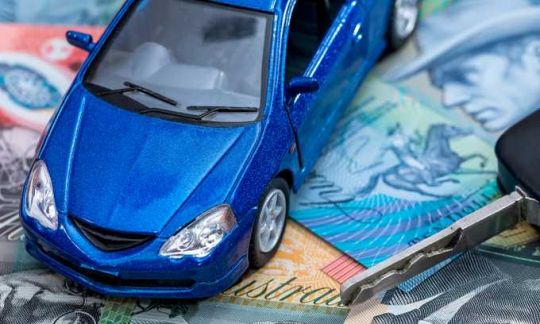Car expenses and tax: what you can and can't claim

Claiming work-related car expenses on your tax return? Find out more about how to do it and what expenses you can and can’t claim.
If you use your car for work purposes, you are entitled to claim the costs of using your car to do your job. There are two methods you can use to claim car expenses. It is important to note that you must own or lease the car to claim under either of the methods. If your car is owned by your employer or is part of your salary package, then you are unable to claim anything.
Method 1: Cents per kilometre
- Your claim is based on a set rate for each business kilometre you travel. Under this method, you are eligible to claim up to a maximum of 5,000 kilometres per year, per vehicle. If you travel in excess of 5,000 kilometres, this method of claim may not be right for you unless you are happy to cap your claim at 5,000 kilometres (which some people who haven’t kept a logbook – see below – have to do).
- Note that because the 5,000 km limit applies per vehicle, if you change your car during the course of the year, you may be able to claim a further 5,000 kilometres for the new vehicle.
- The claim value is calculated by multiplying the total business kilometres travelled (limited to 5,000 per vehicle) by the standard rate of 75 cents per kilometre. This figure takes into account all the vehicle running expenses (including depreciation).
- You do not need written evidence, however, you need to be able to demonstrate that you have covered the kilometres claimed. A diary of work-related journeys (including the kilometres travelled) will suffice.
- Where two or more people own or lease a car and each uses it for work purposes, each can claim 5,000km. So, if Mr Jones used the car for work purposes on Monday and Tuesday and his spouse used the car for work purposes on Wednesday, Thursday and Friday, each of them doing 5,000 work-related kilometres in the vehicle, both can make a claim.
- The cents per kilometre method can’t be used for all vehicles. It cannot be applied to motorcycles, minibuses and cars of one tonne or over (so some of the heavier four-wheel drives and utes aren’t eligible for this method).
Method 2: Logbook
- Your claim is based on the business-use percentage of each car expense. This is determined by a logbook that must have been kept for a minimum 12-week period, and must be updated every five years. Through your logbook you can claim all expenses that relate to the operation of the car, at your percentage of business use.
- The logbook must record all business journeys made in the car over the 12-week period that it records, detailing:
- when the logbook period begins and ends
- the car’s odometer readings at the start and end of the period
- the total kilometres travelled
- the business percentage for the logbook period.
- For each journey in the logbook, you must record:
- start and finishing times of the journey
- odometer readings at the start and end of the journey
- kilometres travelled
- reasons for the journey
- if you make two or more journeys in a row on the same day, you can record them as a single journey.
- You will need to keep all receipts throughout the year to justify your claim, such as insurance, servicing and repairs. Petrol can be estimated using the start and end odometer readings for the year, indicating the total kilometres travelled. A reasonable estimate of fuel and oil expenses can be made by multiplying average fuel consumption for the car (from the Green Vehicle Guide) by average fuel price (from the Australian Institute of Petroleum website).
- Depreciation is calculated as 25% of the written down value of the car.
- There are a number of logbook apps available which can record your journeys using your phone GPS system.
- Don’t forget to exclude holidays and other periods of absence from work from your claim.
Important note: if your car is provided by your employer, or is part of your salary package, you cannot claim any of the costs.
→ Related: What can I claim on my tax return this year?
What car expenses you can claim
You can claim the cost of work-related car expenses if they are incurred whilst performing your job as an employee, such as:
- Carrying tools or equipment required to complete your job
- Travelling from your home to an alternative workspace (such as a client/supplier’s office), and then back to your own workplace or home at the end of the day
- Travelling between two separate workplaces where you are employed
- Travelling to conferences, meetings or other events as required by your employer
- Delivering or picking up items/packages related to your job, and as required by your employer.
What car expenses you can’t claim
You cannot claim the cost of normal trips between home and work. That travel is considered ‘private’, even if:
- You complete minor tasks on the way to work, such as picking up the mail
- You travel back to work for a security call-out
- You work overtime and no public transport is available to use to get you home.
Can I claim car expenses for other types of travel?
- You can claim the cost of using your car to drive to see your tax agent for tax advice or to get your tax returns done.
- You can also claim car expenses if you undertake any courses of study relating to your job and you use the car for trips associated with the course (such as driving from work to the educational institution).
It is important to note that the 5,000 kilometre per vehicle limit relates to all tax-deductible car use.
Main image source: RomanR/Shutterstock.com
About Mark Chapman
Mark Chapman is Director of Tax Communications at H&R Block and is a regular commentator on tax matters for a variety of Australian broadcast and print media outlets, including; Money magazine, My Business magazine, The Australian Financial Review, The Daily Telegraph, The Age and The Business Spectator. Mark is an author, Chartered Accountant, CPA and Chartered Tax Adviser and holds a Masters of Tax Law from the University of New South Wales. Follow him on LinkedIn.
This article was reviewed by our Sub Editor Jacqueline Belesky and Sub Editor Tom Letts before it was updated, as part of our fact-checking process.







